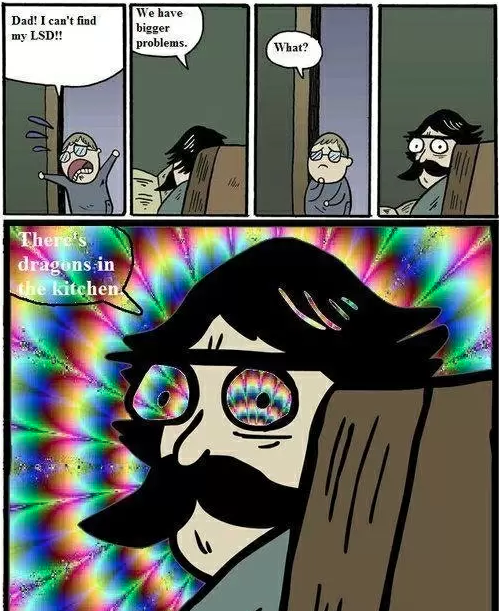Imagine being able to operate at peak performance all day, every day. With no mood swings and no dips in motivation. Aware of your every action to such a degree that you recognise distractions as they occur, meaning you can quickly zero back in and focus on the task at hand, thus allowing you to work, socialise, exercise and otherwise exist in a state of flow that promotes fast, efficient, hyper-logical thinking.
Sounds like magic, right?
Well, it’s not, but it’s pretty damn close. These are actually some of the effects that individuals allege occur when they take psilocybin (the psychoactive ingredient in magic mushrooms) in small doses, also known as microdosing.
What is Microdosing?
Microdosing is the practice of taking enough of a psychedelic drug that you experience an improvement of energy, mood and focus, but not enough that you start seeing dragons in your kitchen.
Many, albeit anecdotal, experiments report that microdosing has a number of far-reaching effects on creativity and problem-solving performance. This is said to be a result of psilocybin targeting serotonergic 5-HT2A receptors, thus enhancing cognitive flexibility, which is crucial to creative thinking.
When Was Microdosing First Popularised?
The first person to ever microdose was purportedly the Swiss scientist Albert Hofmann, who synthesised LSD in 1936. He then began taking it in regular but measured quantities in his old age, referring to LSD as “medicine for the soul.
James Fadiman, an American psychologist and writer, was the first modern individual, however, to give credibility to the experiments in psychedelic studies. His foray into the world of psychedelics and their effect on creative problem solving began back in the 1960s, when he gave LSD and Mescaline to scientists, mathematicians and architects in order to record their experiences.
How Is Microdosing Being Used Today?
Microdosing, and in particular the microdosing of psilocybin, is slowly edging its way into mainstream scientific journals and popular culture.
COMPASS Pathways, for example, is a company that specialises in accelerating patients access to innovations in the mental health field that was recently approved by the US Food and Drug Administration for a clinical trial in psilocybin therapy for treatment-resistant depression.
In relation to the microdosing of LSD, Silicon Valley is fast becoming known as an epicentre for this practice, in the sense that there is a larger concentration of individuals using LSD in the workplace in order to enhance their productivity.
But How Do the Dutch Fit into Microdosing?
Dutch scientists have just held the very first study on psilocybin, driven by reports it may have antidepressant or anti-anxiety effects that can help better develop psychiatric drugs.
Results from the study indicated that psilocybin microdoses appear to improve two forms of thinking that underlie creativity. According to psychologist Bernhard Hommel of Leiden University:
“Performance was significantly higher on tests of convergent and divergent thinking. Convergent thinking is the ability to focus on abstract concepts to identify a single solution to a well-defined problem. Divergent thinking requires meandering mental forays and mental flexibility. Psychologists consider both to be ingredients of creativity”
Unfortunately, the study also found that while Microdosing may support cognitive metacontrol enhancement by optimizing the balance between cognitive persistence and flexibility enhancement, future research is needed to confirm if this finding is accurate. Based on these preliminary results we speculate that psychedelics might affect.
So for all of you who are looking for a productivity hack that really works or just want to put in a near superhuman performance during your next job interview, we suggest thinking twice before dropping a tab of LSD or sipping on some psilocybin laced water before you leave home.




